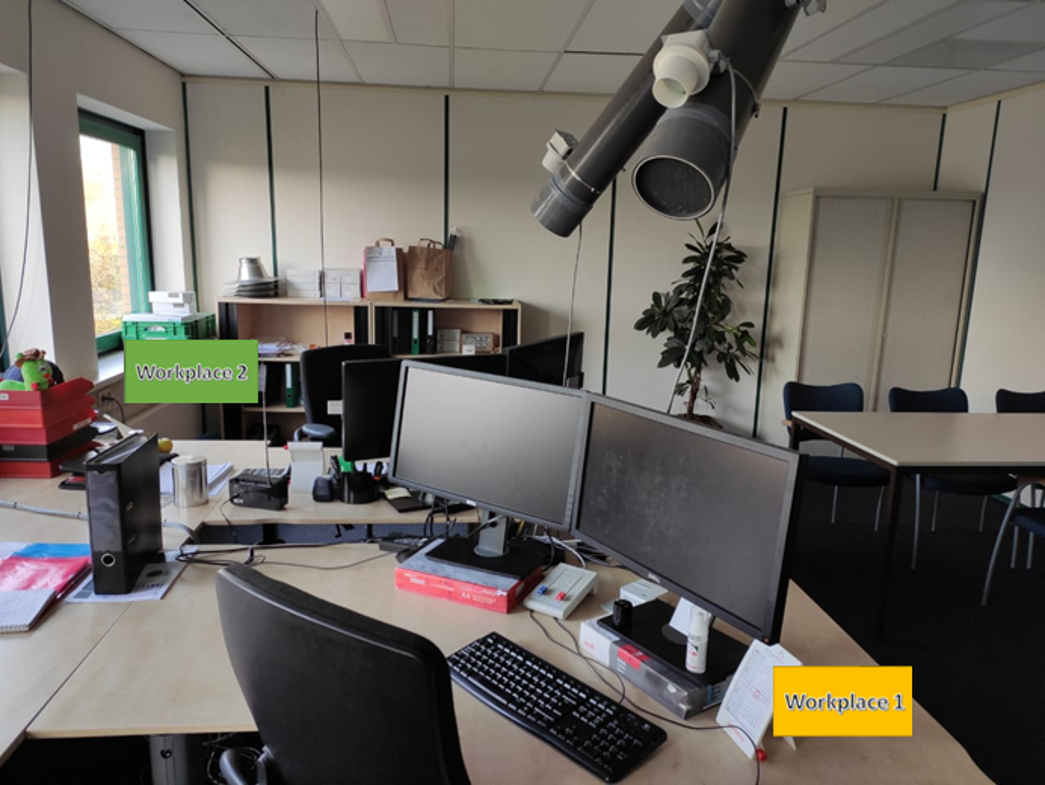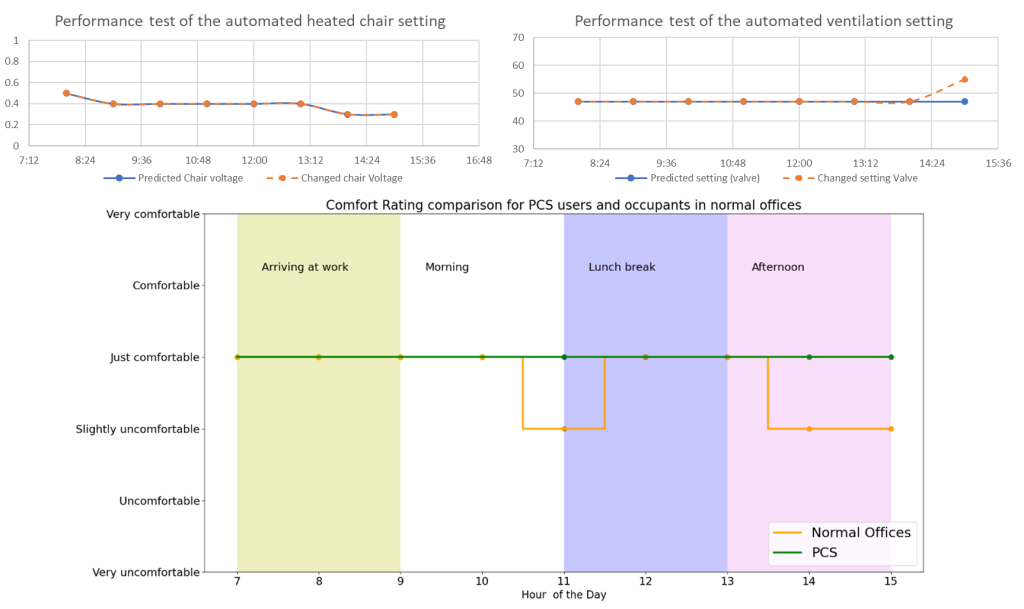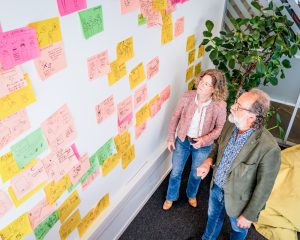Driven by my curiosity and my eagerness to come up with innovative solutions to interesting technical challenges, I started my Engineering Doctorate traineeship in 2021, to contribute to the world of the built environment.
Are we using energy efficiently?
In the Netherlands, buildings are responsible for a great proportion of the total energy consumption. It is estimated that there can be significant energy savings by improving building installations and conditioning systems. Another important issue is the reported dissatisfaction of occupants in non-residential buildings regarding their perceived comfort and air quality. This is not a very efficient way of using energy, especially now that the world is moving to more sustainable energy generation. There are also a lot of research findings regarding the differences in perceived comfort across individuals.

Individualizing comfort in offices
My project, ‘Towards automated personal comfort systems for heating, cooling and ventilation’, is part of the Brains4Buildings consortium. It aims to take the step from research towards design and, thus to develop and test a prototype personalized comfort system (PCS), controlled by a machine learning model, as a module for building management systems for office buildings. The control inputs for the system come from both objective measurements of the environmental conditions around the occupant as well as the occupants’ perceived thermal comfort and perceived air quality.
System development
The prototype PCS was developed in a real office environment, in the living lab of Kropman in Breda. Prior to now, there was been a lot of research performed in controlled experiment rooms (climate chambers) at universities and other institutes. The benefit of developing such a system in a real office environment is that the system and the interaction that the occupants have with it can be tested in real-world conditions.
Performance
During the tests, the system showed promising performance. The machine learning models were able to predict the perfect settings for the volunteers the majority of the time. It was also reported that the volunteers that were using the PCS were felt comfortable throughout the day, whereas other people that worked in the same building in normal offices were experienced some kind of discomfort throughout the day.

What does this mean?
By individualizing comfort systems, there are huge gains that can be made in energy use. PCSs are using significantly less energy for the same task than central conditioning systems. A combination of these systems can prove to be much more energy efficient than the systems currently in use, thus, enabling buildings to easily integrate sustainable on-site energy generation solutions. All this is possible, while still providing increased levels of comfort to the occupants, which also extends to higher productivity and overall improvement of the occupants’ well-being!
By individualizing comfort systems, there are huge gains that can be made in energy use. PCSs are using significantly less energy for the same task than central conditioning systems
